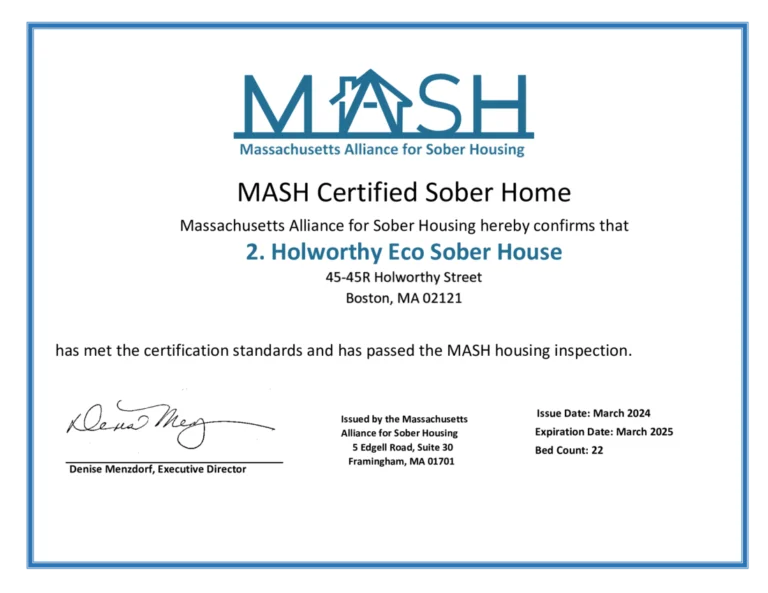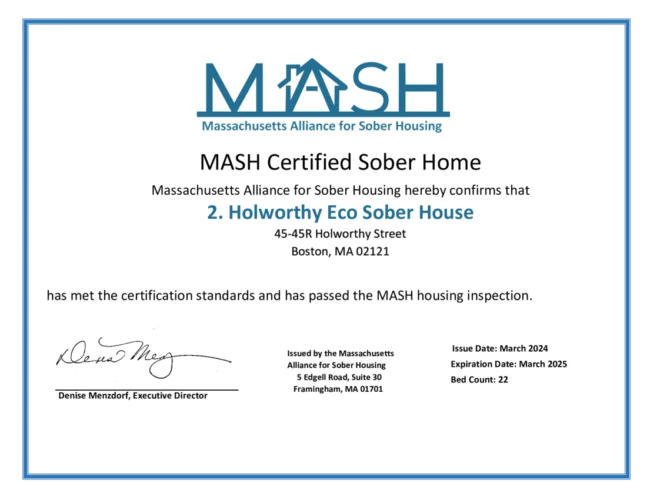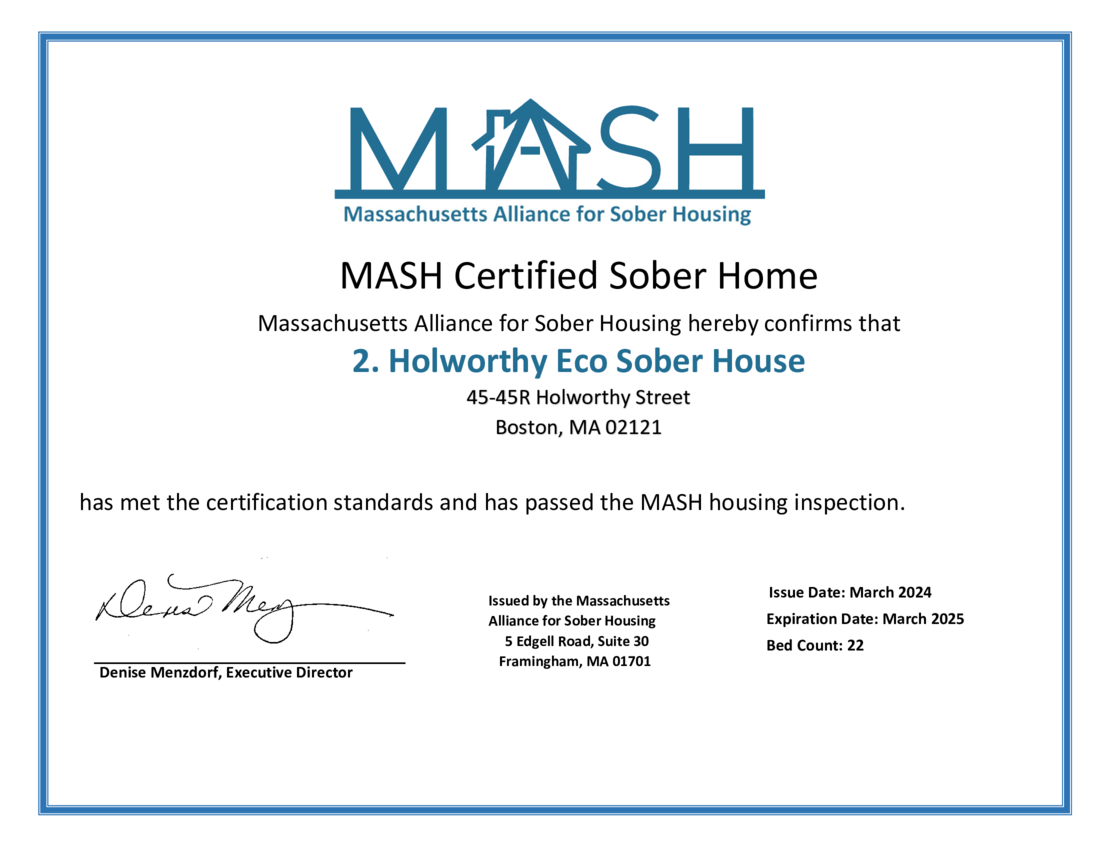
When someone enters recovery for alcohol abuse, they usually struggle with anger problems and emotional regulation. The early months of sobriety can be an emotional rollercoaster filled with many highs and lows; the relationship =https://ecosoberhouse.com/ between alcoholism and anger is a complicated one. Although alcohol consumption may produce short-term relaxing and soothing effects, it has many adverse effects on human behavior and emotions in the long run. As mentioned above, alcohol can damage the brain cells and their chemicals; alcohol can lead to aggression, uncontrolled anger, offensive behavior, and violent activities. Moreover, alcohol can also cause dysregulation in the body’s stress pathways, resulting in increased anxiety, stress, psychosis, and suicidal tendencies.

How does alcohol affect the brain?
Meditation can help clients to relax physical tension, become more self-aware, and work toward creating a healthy mind-body balance. Other holistic methods are often used during a comprehensive addiction and anger management treatment program as adjunctive, or complementary, treatment methods. Massage therapy can help to relieve physical tension and therefore promote mental clarity. Expressive therapies provide healthy, and often nonverbal, outlets for the expression of negative and difficult emotions.
Social factors

Delirium tremens describe a hyperadrenergic state, disorientation, tremors, diaphoresis, and impaired attention/consciousness. This may occur following a planned or unplanned decrease in alcohol intake. With repeated use of many central nervous system depressants, such as alcohol, a person becomes physically dependent upon the substance and will exhibit signs of both tolerance and withdrawal. Therefore, the abuse potential of central nervous system depressants is relatively high. This study aims to examine the relationship of anger with treatment outcome among alcohol users after 1 year of treatment.
What is considered 1 drink?
Further, we tested whether alcoholism and anger this predictive ability varied as a function of treatment condition. During-treatment changes in anger measures were calculated as the difference between each anger measure as assessed at pretreatment and at treatment end. For AA-Days, AA-Beh and AA-Step, the end-of-treatment score (i.e., the report of behavior during the treatment period) was used. To understand how changes in process variables affected outcomes, treatment condition, a process variable score and the interaction between treatment condition and the process variable score were included in each model.
If You Know You’re an Angry Drunk, What Can You Do?

This article discusses some of the facts behind the stereotype of the “angry drunk” and explores the connection between anger and alcohol. Because denial is common, you may feel like you don’t have a problem with drinking. You might not recognize how much you drink or how many problems in your life are related to alcohol use. Listen to relatives, friends or co-workers when they ask you to examine your drinking habits or to seek help. Consider talking with someone who has had a problem with drinking but has stopped. Table 2 displays demographic characteristics for the sample as a whole and separately by treatment condition.
2.1 Alcohol involvement
- Alcohol withdrawal can be potentially life-threatening, in the case of severe dependence.
- Anger, a normal emotion, can be manifested in various behaviors ranging from mild irritation to explosive outbursts.
- As with all co-occurring disorders, it’s important to treat anger management issues and AUD at the same time as part of a comprehensive treatment program.
- In his case, he was already predisposed to anger arousal before he had his first drink.
There was no significant difference in relation to age on onset of drinking, occupation, and education. 68% of the dependent and abstainers perceived anger as negative emotion and 76% in control perceived it as negative. The presence of significant difference was seen for relapsers group in relation to trait anger and state anger. The group who remained abstinent from the intake to follow-up differs significantly from the dependent group in relation to state anger and anger control out.
Physical health issues
- Because he is a member of a support group that stresses the importance of anonymity at the public level, he does not use his photograph or his real name on this website.
- Misconceptions often surround the relationship between alcohol consumption and emotional responses, particularly anger.
- Ashwood Recovery, located in Boise, Idaho, provides outpatient treatment for co-occurring disorders, individual alcohol counseling, and family counseling.
- Fortunately, people who become irrationally mad when drunk can work to prevent and treat their behavior.
It’s easy to disregard tough emotions in the moment if you know you can “take the edge off” once you have a drink in your hand. It may feel like you’re confronting that anger once intoxicated, but because alcohol also impairs memory, you’re never fully able to process that anger. Many have unresolved feelings of anger, frustration, or rage before they reach for alcohol. Additionally, it’s common for people to self-medicate with alcohol, thinking that drinking will numb those feelings or allow them to forget – if only for one evening. The mood someone is in when they begin drinking is often the mood that will be intensely felt once they’ve reached a level of intoxication.
- Specifically, clients marked by higher anger did better at one- and three-year follow-up in the motivational enhancement condition than in cognitive-behavioral therapy (CBT) or the AAF condition (Karno & Longabaugh, 2004).
- There is also a theory that the disinhibition that alcohol creates raises the risk of violent behavior.
- Theories suggest that for certain people drinking has a different and stronger impact that can lead to alcohol use disorder.
Everyone has a different personality, and a person with the trait of anger is at more risk of violence or aggression when drinking drug addiction alcohol. Similarly, type A personalities are more prone to alcohol-related anger. Anger is a response to different factors like hurt, frustration, jealousy, feeling helpless, rejection, worry, embarrassment, etc. You may become angry on various occasions, and it varies from person to person how you will express your anger. Anger is not always a big issue unless it causes problems in your relationships with family, friends, and loved ones. However, if anger is not treated and managed appropriately, this may cause harm to your health.
Why Am I an Angry Drunk?
As of 2015 in the United States, about 17 million adults (7%) and 0.7 million (2.8%) of those from 12 to 17 years of age are affected. Geographically, it is least common in Africa (1.1% of the population) and has the highest rates in Eastern Europe (11%). Alcoholism directly resulted in 139,000 deaths in 2013, up from 112,000 deaths in 1990. A total of 3.3 million deaths (5.9% of all deaths) are believed to be due to alcohol.
